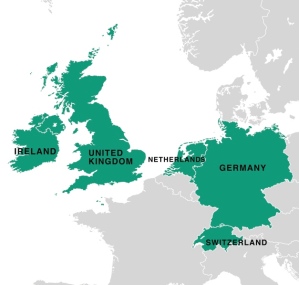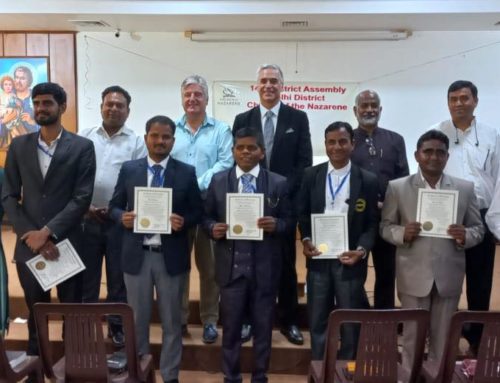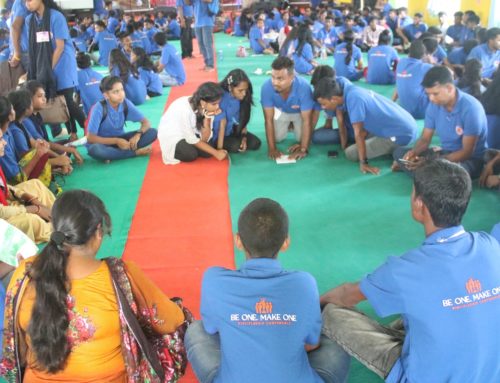In the British Isles South, District Superintendent David Montgomery says the district is looking at proposals for at least two new works.
In the Netherlands, a local Nazarene church has outgrown its building and is praying and fasting this month about whether God wants them to plant a new church in their neighborhood.
 Plans are also underway in Hungary and the British Isles North District for strategically initiating new fellowships to reach unchurched people.
Plans are also underway in Hungary and the British Isles North District for strategically initiating new fellowships to reach unchurched people.
Church planting is an increasingly urgent focus in districts throughout the Northern Europe and Central Europe fields. During his district assembly tour this spring, Jerry Porter, the general superintendent in jurisdiction over the Eurasia Region, urged leaders to pray about where God might be leading them to plant new works.
For many of the leaders, this message simply reinforced what Montgomery said they already knew: they must plant churches “or die.”
Despite the cultural challenges that make church planting a seemingly slow process, becoming missional is infusing new life and purpose in local churches that may have lost momentum in growth or become too inward focused. Helping local churches embrace their God-given mission is the objective of the region’s Power of One initiative, launched in late 2010.
The Netherlands
The Dordrecht church in the Netherlands voted last fall to investigate planting a new church.
The church, which started in 1985, moved into a new building in 2001. Now, running about 430 people, plus almost 100 children, the congregation has nearly outgrown its current meeting space. In a meeting last fall, the church agreed they didn’t want to add a second Sunday morning worship service, nor move to a bigger building. So planting a new church seemed like the best option, Pastor Michel Meeuws said.
“I have a dream that this church will be called to people who live here, and the people who become leaders now – the young people – will become the leaders of the new church.”
Dordrecht church is made up of predominantly white, educated, upper class families. But the church itself is located in a lower income neighborhood of which many residents are immigrants, single mothers and others struggling economically.
The congregation has begun reaching out to its neighborhood, starting with a support group for teenage mothers. They also invited the neighborhood to the Christmas Eve service, but noticed the visitors seemed uncomfortable in the service’s more reserved, traditional style – many of the immigrants come from more demonstrative evangelical cultures.
Starting a new fellowship with input from the immigrant community may be more successful than trying to integrate them into the existing church’s worship styles, Meeuws said.
The church has prayed and fasted for three consecutive Saturdays in April about whether God wants them to plant a new church, and if so, where and with which leaders.
British Isles South
During this year’s district assembly, pastors from throughout the British Isles South anonymously wrote ideas for places they would like to start new churches, and submitted the papers to the superintendent, David Montgomery, during Porter’s sermon urging the district to plant new works. There were almost 90 locations submitted.
In the United Kingdom, planting a new church is challenging, and can take a long time. However, the district has already recognized its need to plant churches, and three healthy starts have been underway in the past few years. Two more locations are under consideration by the district, Montgomery said.
“The Church here has been in decline for 30 years, I would imagine. Over the past five or six years … the Church has become more missional. The word ‘missional” is a key word for us. We’re seeking to plant new churches because otherwise we will die.”
Europe may be “skeptical” of things concerning faith, but Nazarene churches in Europe have faith that God is at work, and want to join Him in what He is already doing.
Check out part two of this report in next week’s Snapshot, May 2, to see what other districts are doing in the area of church planting.



